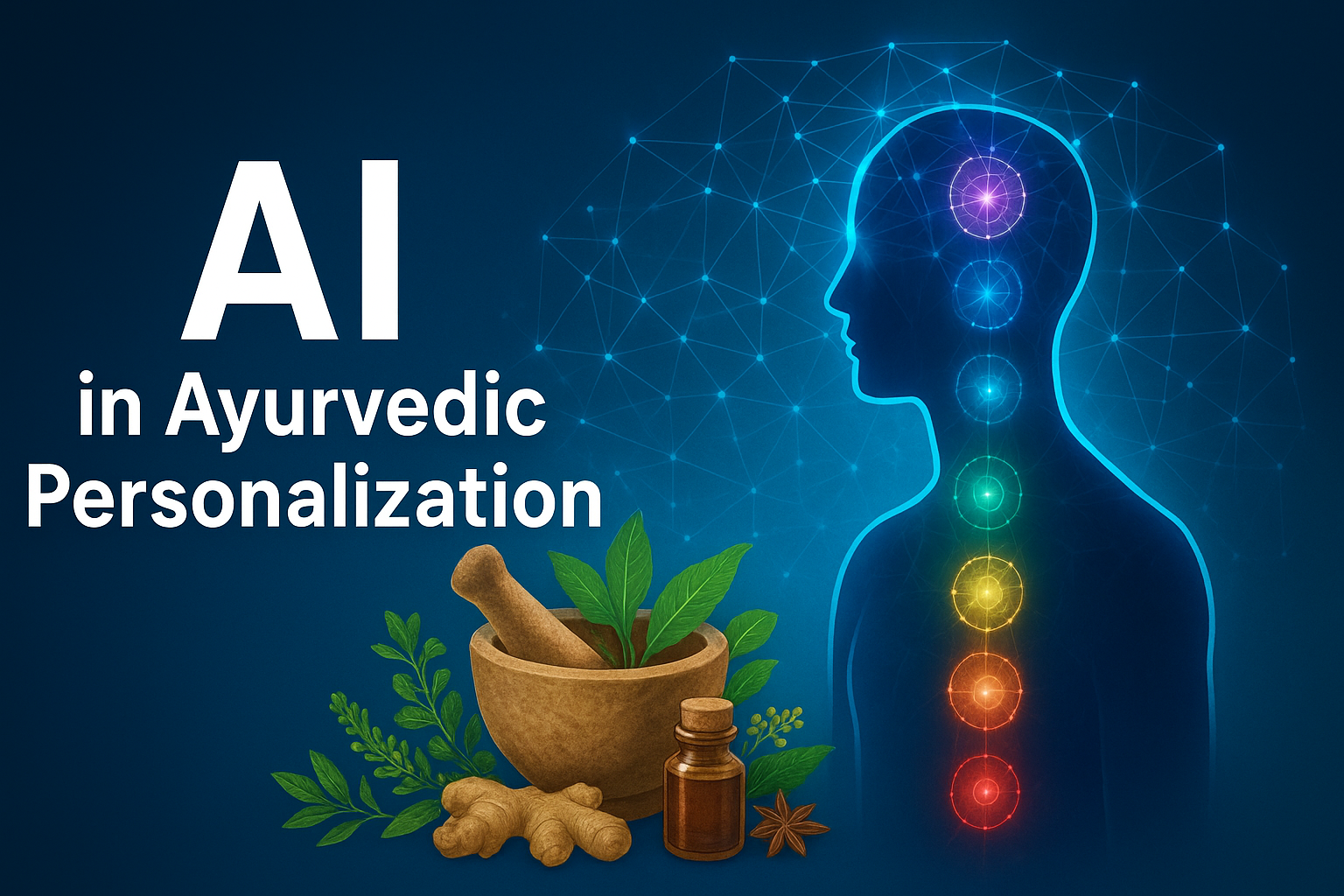Introduction: Ancient Wisdom Meets Artificial Intelligence
For centuries, Ayurveda has guided people toward balance through personalized healing — based on unique Prakriti (body constitution), diet, and lifestyle. But as technology advances, the timeless science of Ayurveda is entering a new era of AI-powered personalization.
In 2025, Artificial Intelligence is bridging the gap between traditional Ayurvedic wisdom and modern health analytics. From smart diagnostic tools that read your pulse (Nadi Pariksha) to AI wellness platforms that customize diet and herbs based on your dosha, this integration is reshaping how we understand and apply holistic care.
Let’s explore how AI is revolutionizing Ayurvedic personalization — making wellness more precise, data-driven, and accessible than ever before.
Understanding Ayurvedic Personalization
Before we dive into AI, it’s important to understand Ayurveda’s personalized foundation.
Ayurveda classifies individuals based on their Prakriti, determined by the three doshas — Vata, Pitta, and Kapha. Each person’s ideal state of health is unique, depending on:
- Body constitution (Prakriti)
- Current imbalance (Vikriti)
- Digestive strength (Agni)
- Mental and emotional patterns
Personalized Ayurvedic care involves custom diets, herbal formulations, and daily routines (Dinacharya) to restore this balance.
However, identifying these subtle variations has always depended on the practitioner’s intuition and experience — and that’s where AI now steps in.
How AI is Transforming Ayurvedic Personalization in 2025
1. AI-Powered Dosha Analysis
Advanced AI models now analyze facial features, voice tone, and health metrics to determine your dosha composition more accurately than ever.
Through image processing and machine learning, apps can identify Vata, Pitta, or Kapha dominance using simple selfies and questionnaires.
Example: In 2025, startups like AyuAI and DoshaSmart are combining biometric data with Ayurvedic theory to generate personalized health profiles instantly.
2. Predictive Health and Early Diagnosis
AI tools are being used to predict imbalances before they manifest as disease.
By analyzing patterns in diet, sleep, stress, and wearable-device data, these systems can warn users of early dosha disturbances — allowing preventive action.
Ayurvedic Insight: In classical texts, prevention (Swasthasya Swasthya Rakshanam) is central. AI aligns perfectly with this preventive philosophy.
3. Customized Herbal & Nutrition Plans
Machine learning algorithms are now helping Ayurvedic physicians create personalized herbal formulas based on genetic markers, allergies, and body constitution.
This is taking the ancient principle of “Naturopathy for the Individual” to a scientific level.
AI also recommends ideal foods according to your dosha and local season — digitizing the wisdom of Ritu Charya (seasonal regimen).
4. Virtual Ayurvedic Assistants and Teleconsultations
AI chatbots trained on Ayurvedic texts now assist practitioners and patients alike.
They provide lifestyle suggestions, guide meditation practices, and even track progress over time.
Trend 2025: Several tele-Ayurveda platforms use natural language models to simulate initial consultations and connect users with certified practitioners online.
5. Integrating Genomics and Ayurveda
The latest frontier in Ayurgenomics combines genetic data with Ayurvedic profiling. AI helps identify how genes influence dosha balance and metabolic tendencies — paving the way for precision Ayurveda.
This integration could soon allow herbal therapies and diets to be customized at the DNA level.
Benefits of AI-Driven Ayurvedic Personalization
- Enhances accuracy of dosha detection
- Makes Ayurveda accessible through mobile and wearable tech
- Improves treatment consistency and progress tracking
- Enables early detection of lifestyle-related disorders
- Empowers users to take proactive control of their wellness
Challenges and Ethical Considerations
While AI offers immense potential, Ayurveda emphasizes human intuition, empathy, and spiritual insight — aspects that algorithms cannot replicate.
- Data Privacy: Sensitive health and genetic data must be protected.
- Authenticity: AI systems must rely on validated Ayurvedic knowledge, not oversimplified interpretations.
- Human Oversight: Technology should assist, not replace, qualified Ayurvedic practitioners.
The goal is synergy, not substitution.
Conclusion: The Future of Ayurveda is Intelligent and Individual
The fusion of AI and Ayurveda marks a powerful evolution — where timeless wisdom meets real-time intelligence.
By combining traditional diagnostics with digital precision, 2025 stands as a turning point for holistic healthcare.
Ayurvedic personalization powered by AI doesn’t replace ancient wisdom — it enhances it, helping every individual access their ideal path to balance, wellness, and self-healing.
In essence: AI decodes your data; Ayurveda decodes your nature. Together, they create the future of mindful medicine.
FAQs Section
How does AI personalize Ayurveda?
AI uses biometric data, voice, and health analytics to determine dosha types and suggest customized Ayurvedic remedies.
Can AI replace Ayurvedic doctors?
No — AI can support practitioners by improving diagnostic precision, but the holistic interpretation of Ayurveda remains human-led.
What are the key AI trends in Ayurveda for 2025?
Trends include dosha-detection apps, Ayurgenomics research, and wearable integration for real-time dosha tracking.
Is AI-based Ayurveda reliable?
When developed with authentic Ayurvedic data and practitioner guidance, AI-based tools are safe and effective for wellness tracking and preventive care.
Will Ayurveda become more global through AI?
Yes. AI platforms make Ayurveda accessible worldwide by translating personalized recommendations across cultures and health systems.

